UNFPA geospatial dashboard on Intimate Partner Violence:
Reliable, comparable data to end all forms of violence against women and scale-up prevention and response efforts
Reliable and comparable data on violence against women is essential for prevention and response efforts. UNFPA's first geospatial dashboard on Intimate Partner Violence (IPV) features data on the proportion of ever-partnered women who experienced IPV in the past 12 months. It uses the latest SDG indicator 5.2.1 data that governments have reported to the United Nations for the Sustainable Development Goals. The dashboard includes sub-national data and disaggregated data by age, urban-rural, employment, women’s highest level of education, and household wealth. This IPV dashboard offers the highest data coverage of any related source, including data for 119 countries covering all regions of the world. This is a powerful new tool to see where women are at greatest risk and tailor programming accordingly.
The dashboard can be accessed at https://www.unfpa.org/geospatial-dashboard-intimate-partner-violence
Further resource: https://www.unfpa.org/resources/prevalence-rates-trends-and-disparities-ipv
Data and statistics for more gender-responsive trade policies
The interactions between trade and gender are complex and context-specific. Therefore, making trade policies more gender-responsive requires sound national statistics. UNCTAD, ECA, and ECE developed a coherent approach to measuring the impact of trade on gender equality and analyzing the related effects of COVID-19. It uses official statistics and builds on the existing statistical data and capacity of countries. The project supports countries in micro linking different databases on international trade, labor force, earnings, among others, to get better insights about women and international trade. Preliminary findings of the project show that linking existing microdata on trade and businesses with data on individuals’ education, jobs, and earnings is a sustainable way forward to inform trade policy.
Links: Project page | Short video
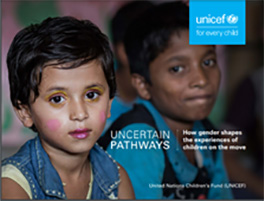
Uncertain Pathways: How gender shapes the experiences of children on the move
Age plays a critical role in a child’s migration, but how will gender mediate that experience? Which gender-specific vulnerabilities, needs, and opportunities influence the lives of girls and boys on the move?
This report reviews the existing evidence base – official statistics and quantitative and qualitative studies from the community level to the global level – to shed light on these important questions. Examining the available information not only indicates where and how children on the move need targeted resources, support and protection, but also pinpoints areas needing further investigation.
Available data and research demonstrate that gender plays a pivotal role from the time the decision to leave home is made and continues to shape experiences and vulnerabilities throughout the child’s journey and integration process at the destination. COVID-19 has added another layer of complexity to the lives of children on the move, exacerbating pre-existing insecurities in some dimensions and introducing new ones. Girls in particular are feeling many of these effects acutely, such as gender-based violence.
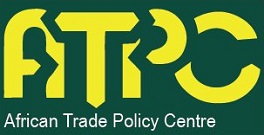
African Trade Policy Centre’s draft White Paper on Advancing gender-equitable outcomes in African Continental Free Trade Area (AfCFTA) implementation
The paper, prepared by gender and trade expert Nadira Bayat, highlights opportunities and potential risks of the AfCFTA for women and demonstrates how key provisions in the Agreement can be leveraged to promote gender-equitable outcomes in AfCFTA implementation. It introduces three strategic entry points for operationalizing gender mainstreaming in AfCFTA National Strategies, together with a practical four-step approach for implementing gender analysis and raises two overarching policy conclusions. This white paper reflects ECA’s best practice from our leadership on gender mainstreaming in AfCFTA strategies and consolidates our position on the approach. It furthers ATPC’s leadership in research and policy analysis on gender and trade on the continent and globally, particularly given our work on the gender dimensions of the AfCFTA. French version forthcoming.
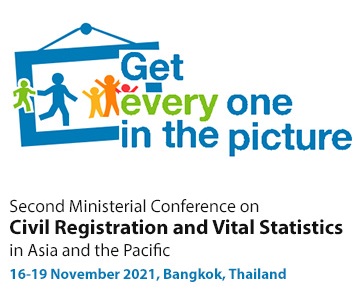
Second Ministerial Conference on Civil Registration and Vital Statistics in Asia and the Pacific
A. Session 6. Implementing gender-sensitive civil registration and vital statistics systems through a life cycle approach (formal session), Thursday, 18 November – 11am-12pm
SummaryCivil registration and vital statistics can play a significant role in providing individuals with a legal identity, thus enabling their access to rights and services, and in providing data for analysing gender inequalities and assessing progress towards gender equality in Asia and the Pacific. Under the agenda item, the Conference will assess progress towards addressing gender-specific barriers to civil registration, in particular among marginalized groups. Emphasis will be placed on adopting a life cycle approach to the registration of all vital events, and the importance of such an approach with regard to the promotion of gender equality and the empowerment of women and girls. The Conference will also assess the effectiveness of measures to address barriers to civil registration based on gender inequality and gender-based discrimination. In addition, the Conference will build on the results of the midterm review of the implementation of the Regional Action Framework.
Implementing gender-sensitive civil registration and vital statistics systems through a life cycle approach (ESCAP/MCCRVS/2021/6) (to be issued in English on 5 October, in other languages on 19 October) In document ESCAP/MCCRVS/2021/6, the role of civil registration and vital statistics in assessing gender inequalities is discussed, and the importance of adopting a life cycle approach to the registration of all vital events is highlighted. The importance of addressing gender-specific barriers to civil registration is noted, and the essential role that civil registration gender data can play in promoting gender equality and the empowerment of women and girls is underscored.
B. Warm-up event. Connecting Vital Events Registration and Gender Equality, Thursday, 18 November – 8:45-9:30am
SummaryTo have informative and interactive debates on the issues before formal sessions, a side-event on “Connecting vital events registration and gender equality” will take place earlier in the morning. The side-event seeks to build broader appreciation of the gender transformative potential of vital statistics derived from civil registration data. It also is intended as an opportunity to further align efforts in strengthening civil registration systems with efforts to improve gender equality and the empowerment of women and girls everywhere.
Links: Event Page | Side-event proposal form
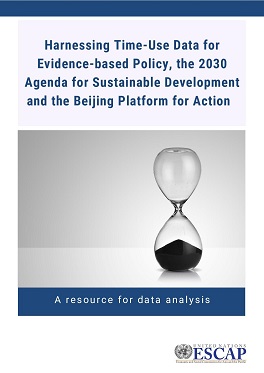
ESCAP Publication on time-use data analysis (May 2021)
Harnessing time-use data for evidence-based policy, the 2030 Agenda for Sustainable Development and the Beijing Platform for Action
The publication provides a reference on the application of time-use data in providing insights for the formulation and monitoring of public policies as well as monitoring of the Sustainable Development Goals. It provides detailed guidance on accessing, processing and analysing time-use data from selected national surveys to examine socio-economic dynamics in a range of areas while exploring public policy priorities and ways forward. The publication is designed for reference and use by national statistical offices and other relevant national agencies contributing to policy research, analysis and formulation as well as Sustainable Development Goals implementation and monitoring. It could also serve as a resource for researchers, academia and civil society organizations with an interest in relevant policy analysis.
Links: Publication | Short video
Time-Use Study during Crisis
The project Modernization of Time Use Data Collection and Use funded by Data2X has as overall objective to improve national capacity in producing comprehensive and internationally comparable data on time people spend on different activities. Under the Data2X project, the United Nations Statistics Division (UNSD), in collaboration with the subgroup on TUS during Crisis of the UN Expert Group on Modernizing Time Use Surveys, has prepared a rapid assessment instrument that countries could deploy to collect time use statistics during crisis. The Instrument is meant to provide a quick snapshot of how people spend their time at the moment of data collection, rather than replace a regular time use data collection. It has the advantage of being able to be deployed quickly at times of crisis, such as COVID.
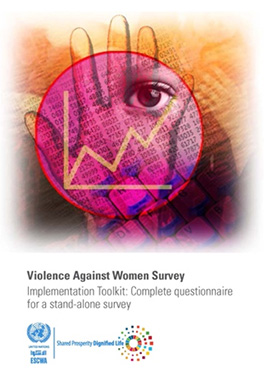
Violence Against Women Survey Implementation Toolkit: Complete questionnaire for a stand-alone survey
Improving tools to measure Violence Against Women (VAW) in conjunction with disseminating the statistical information generated from them is the first step to strengthening national capacities for developing policies and programmes that address this issue effectively. Moreover, the development of a common framework for a methodology to measure VAW will allow focus on specific challenges facing different regions and contexts. Through development and partnership in standardizing a regional methodology for agreed indicators to assess the prevalence of VAW, it is possible to develop and accelerate the adoption of advanced mechanisms for data collection and measurement of VAW in national statistical offices.
Link: https://www.unescwa.org/publications/violence-against-women-survey-implementation-toolkit
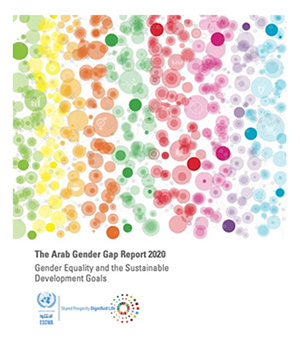
The Arab Gender Gap Report 2020
The Arab Gender Gap Report explores the state of gender equality across 22 Arab countries through gender-related indicators linked to issues inherent in the SDGs. The report is unique as it includes regional priority gender-equality indicators – quantitative and qualitative – to help fast track progress on the policies and laws at the country level, and to monitor the implementation of the SDGs. The report reveals that critical gender gaps persist in the main areas, despite the gains achieved by the countries over the years. The report also shows that although several countries have achieved important milestones towards gender equality, however, the “last mile” remains to be covered before girls and women enjoy full equality and the realization of their rights.
Link: https://publications.unescwa.org/projects/aggr/index.html#\39


